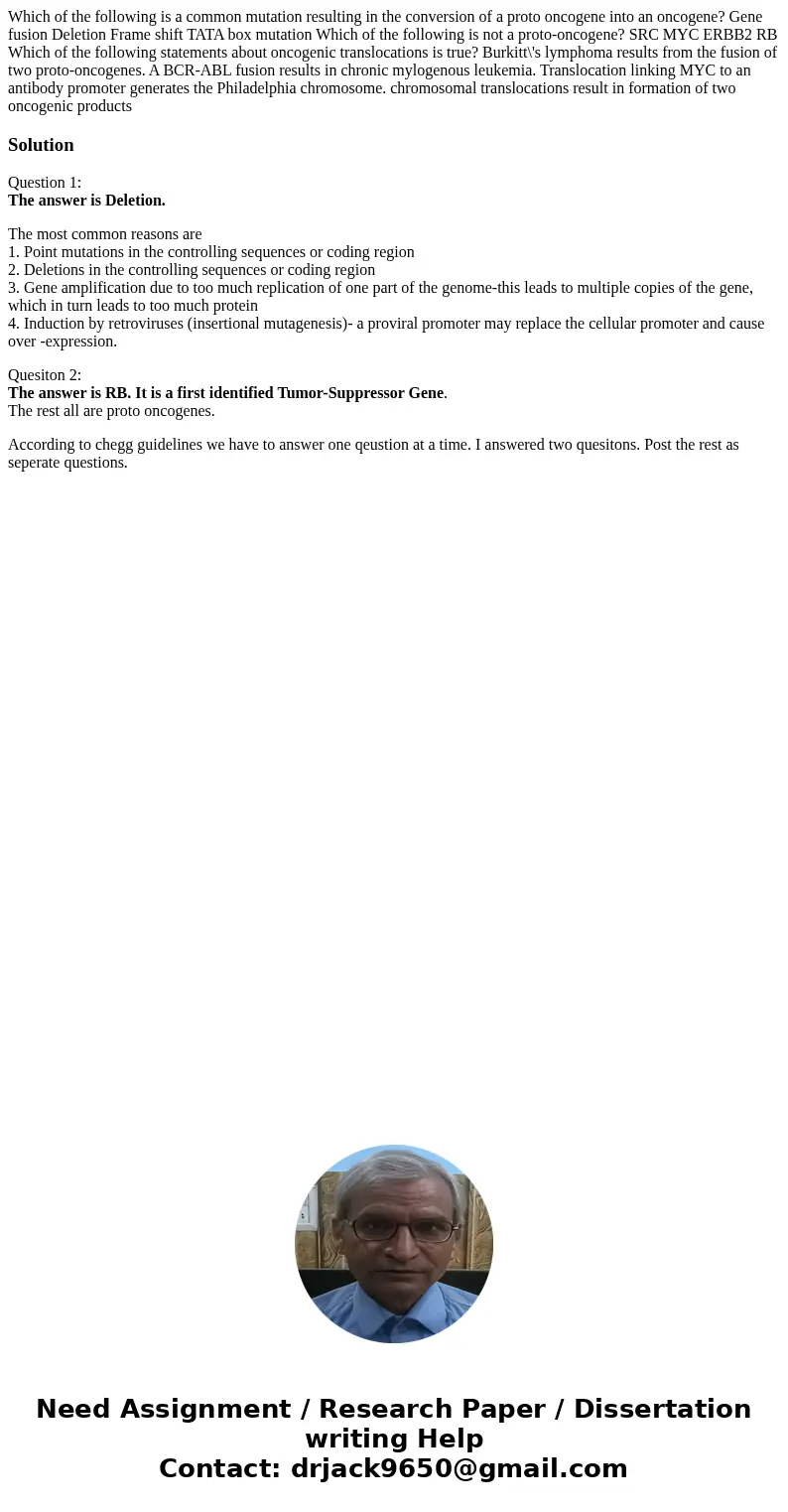Which of the following is a common mutation resulting in the
Which of the following is a common mutation resulting in the conversion of a proto oncogene into an oncogene? Gene fusion Deletion Frame shift TATA box mutation Which of the following is not a proto-oncogene? SRC MYC ERBB2 RB Which of the following statements about oncogenic translocations is true? Burkitt\'s lymphoma results from the fusion of two proto-oncogenes. A BCR-ABL fusion results in chronic mylogenous leukemia. Translocation linking MYC to an antibody promoter generates the Philadelphia chromosome. chromosomal translocations result in formation of two oncogenic products 
Solution
Question 1:
The answer is Deletion.
The most common reasons are
1. Point mutations in the controlling sequences or coding region
2. Deletions in the controlling sequences or coding region
3. Gene amplification due to too much replication of one part of the genome-this leads to multiple copies of the gene, which in turn leads to too much protein
4. Induction by retroviruses (insertional mutagenesis)- a proviral promoter may replace the cellular promoter and cause over -expression.
Quesiton 2:
The answer is RB. It is a first identified Tumor-Suppressor Gene.
The rest all are proto oncogenes.
According to chegg guidelines we have to answer one qeustion at a time. I answered two quesitons. Post the rest as seperate questions.

 Homework Sourse
Homework Sourse